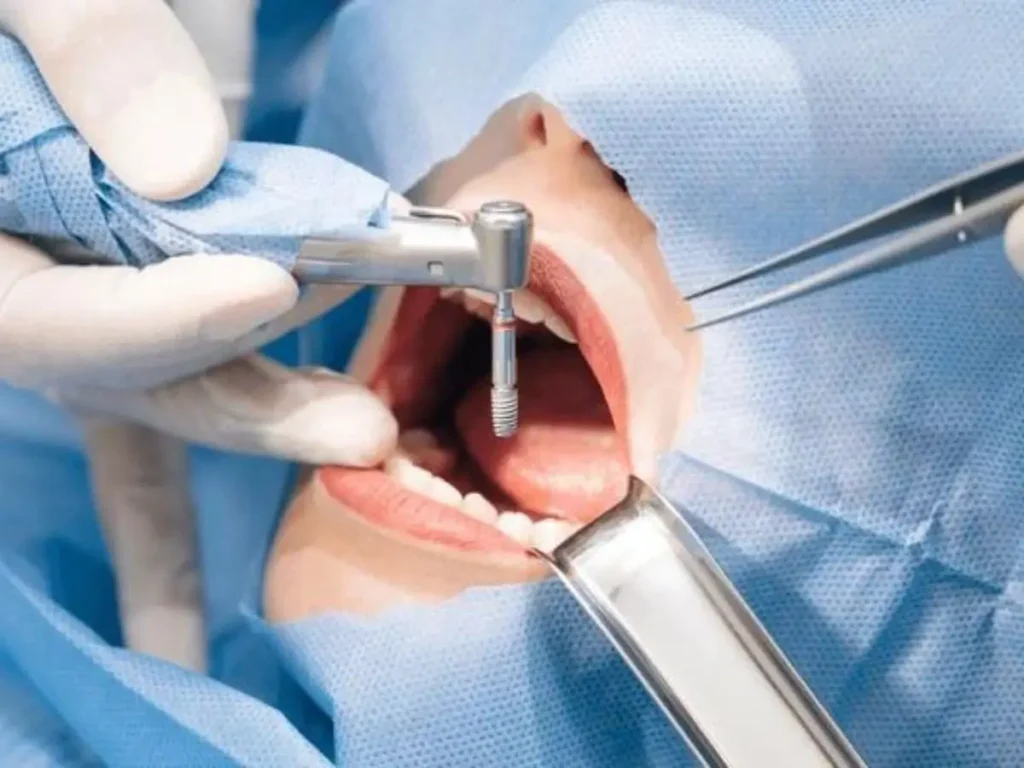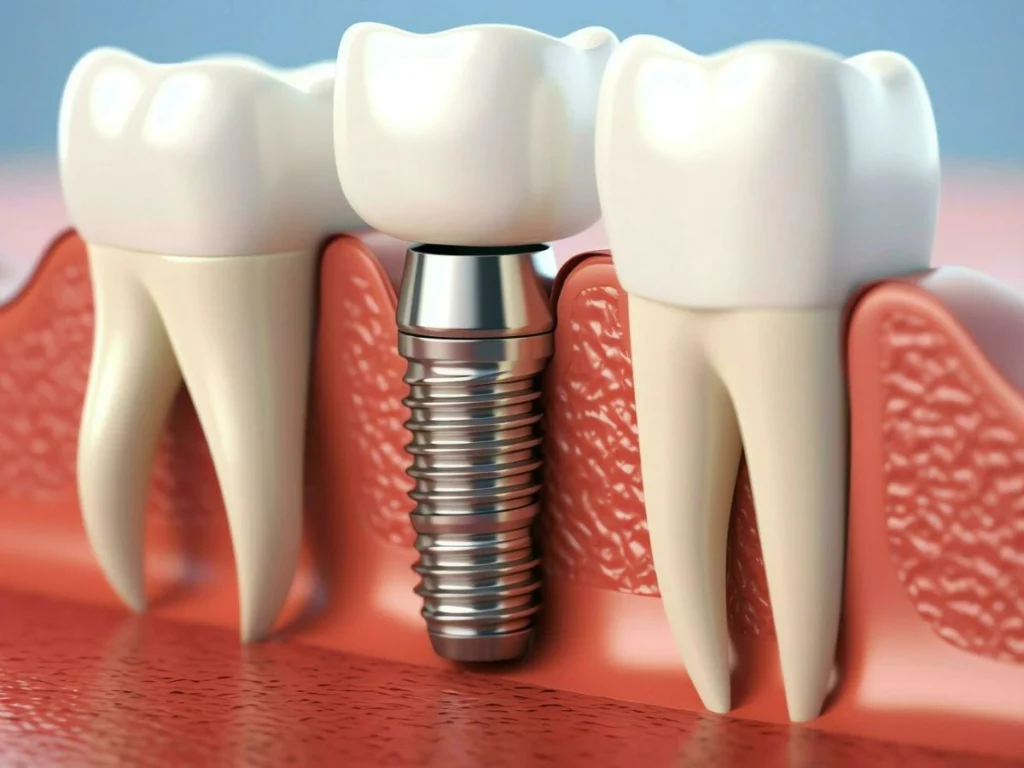Are you looking for dental implant to regain your natural smile? This surgery has common procedure that provides a permanent solution for missing teeth. In this guide we will walk you through how dental implants work, what is the procedure of dental implant, what to expect during the process and how to care for them after surgery.
Your smile is a also a part for your overall well being, the dental implants plays an important role to regain your healthy smile. Whether you are seeking for best dental implants in Sydney or in any place in australia, they provide you a full guidance on dental implants by understanding a entire procedure.
What Are Dental Implants?
How Do Dental Implants Work?
In this treatment, the titanium post integrates with the jawbone through the process called as osseointegration. This replicates the natural tooth root and create a durable and stable base for artificial tooth and dental crown.
Dental Implant Procedure: A Step-by-Step Overview
It first starts with a consultation where a patient visits the clinic and dentist will check whether you are a suitable for implant treatment. they will analyse your teeth, gums and jawbone using X-rays and 3D scans to ensure you have a enough required bone for the implant. Or If Necessary a tooth extraction or bone graft may be done to prepare for the process, During the consultation, the dentist will discuss your treatment plan, including the number of implants needed and anesthesia options for your comfort.
Once everything is all set, then dentist will make a small cut in your gum to place the titanium implant post into your jawbone. this post will combine with bone and this process is called osseointegration, which usually takes several months. After the implant has fully integrated a small connector called abutment is attached to the post that serves as the base for your final crown.
the final step is attaching a custom made crown to the abutment, this crown is designed to match the shape, size and color of your natural teeth providing you with a secure and natural looking smile. The whole process makes sure your dental implant is strong, Functional, and looks natural.

What is the Cure process after dental implant treatment?
Dental implants have been a reliable option for replacing missing teeth for over 30 years. They are strong, long-lasting, and blend in with your natural teeth. After getting dental implants, here are a few things to expect:
- Some swelling and bruising around the implant area is normal and should improve in a few days.
- You may feel mild discomfort, which can be managed with over the counter pain relief.
- It’s important to keep the implant area clean by brushing and flossing regularly. Also, make sure to visit your dentist for checkups to ensure the implant is healing well.
Don’t Rush To Consume Hard Foods
After your surgery, try to avoid hard foods like nuts, crunchy fruits, and chewy candies for a few days. These can hurt your sensitive gums and it can cause pain, headaches, or bleeding. Let your implants heal first, and then you can slowly start eating hard foods again.
How Long Does A Dental Implant Procedure Take?
Dental implant surgery can take between 1 to 5 hours, depending on how many implants are needed and how complex the procedure is. The time it takes can also depend on factors like how many teeth are being replaced and the condition of the patient’s jawbone.
After the surgery, there is a healing period that lasts several weeks or months, allowing the implant to bond with the jawbone.

Cost of A Dental Implant treatment in Sydney
In Sydney, the cost of a dental implant treatment starts around $4000 per tooth, which also depends on procedure and materials used during treatment. this price includes a professional dental care with a high quality results. it is an good investment in restoring your smile and confidence.
What Are the Risks of Dental Implants?
While dental implants are generally safe, it’s essential to be aware of potential risks of dental implants, here are the some points :
1. Infection
Infections can occur at the implant site and may need antibiotics or in severe cases, the removal of the implant.
2. Implant Failure
If the implant doesn’t integrate with the bone, it may need to be removed and replaced. This is rare but can occur due to factors like poor bone quality or smoking.
3. Nerve Damage
There’s a risk of injuring surrounding nerves, particularly in the lower jaw. This can cause numbness or pain in the gums, lips, or chin.
4. Gum Recession
If the gums surrounding the implant recede, it can lead to discomfort and inflammation, requiring additional treatment.
5. Sinus Issues
In some cases, implants placed in the upper jaw may protrude into the sinus cavity, leading to sinus problems. A sinus lift or bone graft may be necessary to correct this.
6. Bone Loss
If the bone around the implant deteriorates, it can weaken the stability of the implant. Regular check-ups and good oral hygiene are key to preventing this issue.
7. Allergic Reactions
While rare, some people may have an allergic reaction to the titanium used in the implant. Alternatives like zirconia may be considered in these cases.
8. Excessive Bleeding
Bleeding is usually minor, but in some cases, it can persist after surgery. If bleeding continues, it’s important to seek dental care.
9. Prolonged Swelling
Swelling and discomfort after the procedure are normal, but if they persist for longer than expected, further evaluation may be necessary.
10. Peri-Implantitis
Peri-implantitis is an inflammatory condition affecting the tissues around the implant, similar to gum disease. If left untreated, it can lead to bone loss.
Why Choose Dental Implants?
Dental implants offer several key benefits over other tooth replacement options:
- Long-Lasting: Following dentist advice with proper care, dental implant can lasts for decades.
- Natural Appearance : Dental implants look and feel looks like natural teeth makes a excellent choice for smile restoration.
- Prevent Bone Loss: By replacing the tooth root, implants stimulate the jawbone and prevents bone deterioration
- Improved Functionality: Implants restore full chewing power, allowing you to enjoy your favorite foods without worry.
What Are the Alternatives to Dental Implants?
Alternatives to dental implants include dental bridges, dentures, and removable partial dentures (“flippers”). Bridges use nearby teeth for support while dentures replace multiple or all missing teeth. Removable partial dentures are temporary and more affordable, The best option depends on your oral health, budget, and preferences.
Dental implants are a modern solution seeking to restore their smile and improve their dental health. With proper care, they even can last lifetime giving you back both the functionality and aesthetics of natural teeth. If you are Seeking for best dental implants in liverpool or in the parts of sydney, our experienced team is their to guide you through the process
We offer personalized consultations to help you understand how dental implants work and identify the best treatment for your specific needs.
Take the first step for a healthy and more confident smile by scheduling a consultation with our experts today. we’re dedicated to helping you achieve the smile of your dreams with long lasting dental implants.
FAQs
Dental implants are designed to last a long time, often decades, with proper care and maintenance.
You won’t feel any pain during the procedure because your dentist will use anesthesia or offer sleep dentistry. After the implant, your dentist will prescribe pain relief medication to help manage any discomfort.
Dental implants can fail because of infection, nerve issues, a loose implant, or other reasons. That’s why it’s important to keep visiting your dentist after the procedure so they can check how it’s healing.
Most people can get dental implants, but your overall health, bone strength, and how well you care for your teeth will be checked first.
You might need a dental implant if you have missing teeth, serious tooth decay, or a damaged tooth that can’t be fixed.
It usually takes about 6-8 months to recover from a dental implant procedure. However, the recovery time can be longer if additional treatments, like bone grafting, are needed.
